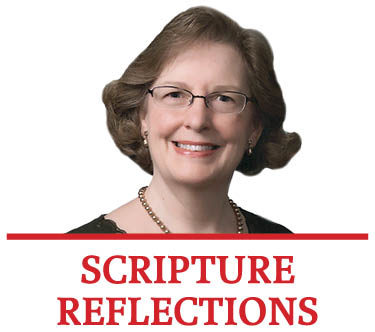Scripture Readings: Dec. 6, 2020
Second Sunday of Advent
Isaiah 40: 1-5, 9-11
Psalms 85: 9-10, 11-12, 13-14 (8)
Second Peter 3: 8-14
Mark 1: 1-8
What defines us today? What shapes how you and I see ourselves? Do we define ourselves by our circumstances – by the fact that we step along the earth riddled with landmines that COVID-19 has placed in our way? Do we define ourselves by what we earn, what we do, by our ideologies? Do we define ourselves by how others see us or by our relationships? Are we who others make us or are we distinguished by something greater?
In the wonderful classic “Les Miserables,” there is a critical life moment of metanoia when the protagonist Jean Valjean, is forgiven by the priest for stealing the silver candles from the rectory. Valjean, who has just been released from prison after 19 years of hard labor, realizes the depth to which his soul has fallen.
Forgiveness offers him an opportunity to change, to repent and to step out of his circumstances. There is a core of goodness within him which rises to the surface, and he cries out that he will no longer be shaped by the prison’s numeric tattoo on his arm, but by something bigger. He cries out: “Who am I? I am Jean Valjean!” He has a name; he recognizes at some nascent level his higher self, no longer a prisoner, but a man of worth.
Valjean trusts, like the psalmist who says:
Kindness and truth shall meet; justice and peace shall kiss.
Truth shall spring out of the earth and justice shall look down from heaven.”
Though Valjean becomes an altruistic mayor of the town, he continues to be hunted down by the enemy of his past. But he realizes evil cannot prevail; truth will spring from the earth and vindicate him. He has changed; thus his world changed with him.
As Advent continues to display her beautiful face to us adorned in Christmas lights and holy waiting, it is critical that we go deep within and ask the same question: “Who am I while standing in the light of God?”
The people we meet in the scriptures today are defined by a passion so contagious, so wild that their words continue to be proclaimed today, enlightening us who walk in darkness. Isaiah, our dear prophet of antiquity, chants: “Comfort, bring comfort to my people.” He is to convince the suffering people of Jerusalem that the tenderness of God has not abandoned them. They are told to prepare for the coming of their God by removing all interior obstacles — their sin, their complaining smallness, their false gods — so that they will be able to see and embrace the glory of God.
They are to defy their circumstances amidst their oppression and prepare a highway of victory, not for kings and generals who rule with cruelty, but for their God, triumphant.
Centuries pass and another prophet rises up in the time of Roman oppression. It is the voice of hope, a new day is coming and John the Baptist — that odd and bold precursor of Jesus Christ – echoes Isaiah’s truth: “prepare the way of the Lord, make straight his paths.” So compelling are John’s words that people from all over the Judean countryside and all the inhabitants of Jerusalem come to John in the river Jordan to be baptized, releasing to the dark waters their sins.
Why? Because they refused to be defined by sin, by a hopelessness that their lives could not get better. John gave them hope. In essence he says: “One mightier than I is coming. I have baptized you with the water (of repentance) but Messiah will immerse you in the Holy Spirit.”
In other words, the fire that burns in John will burn also in you.
And so that when Messiah comes, Jesus Christ, the Son of God, they will be ready to follow him. So must we be ready. We, too, live in difficult times often scuttled by confusion, but it is Christ who calls us to rise up, repent and be shaped by the proclamation of the Good News.
And if we allow the Good News, the proclamation of the holy Gospel, to define us, and if we invite the Christ onto our inner highway, making the path straight for him, then in the end, we will know who we are.

